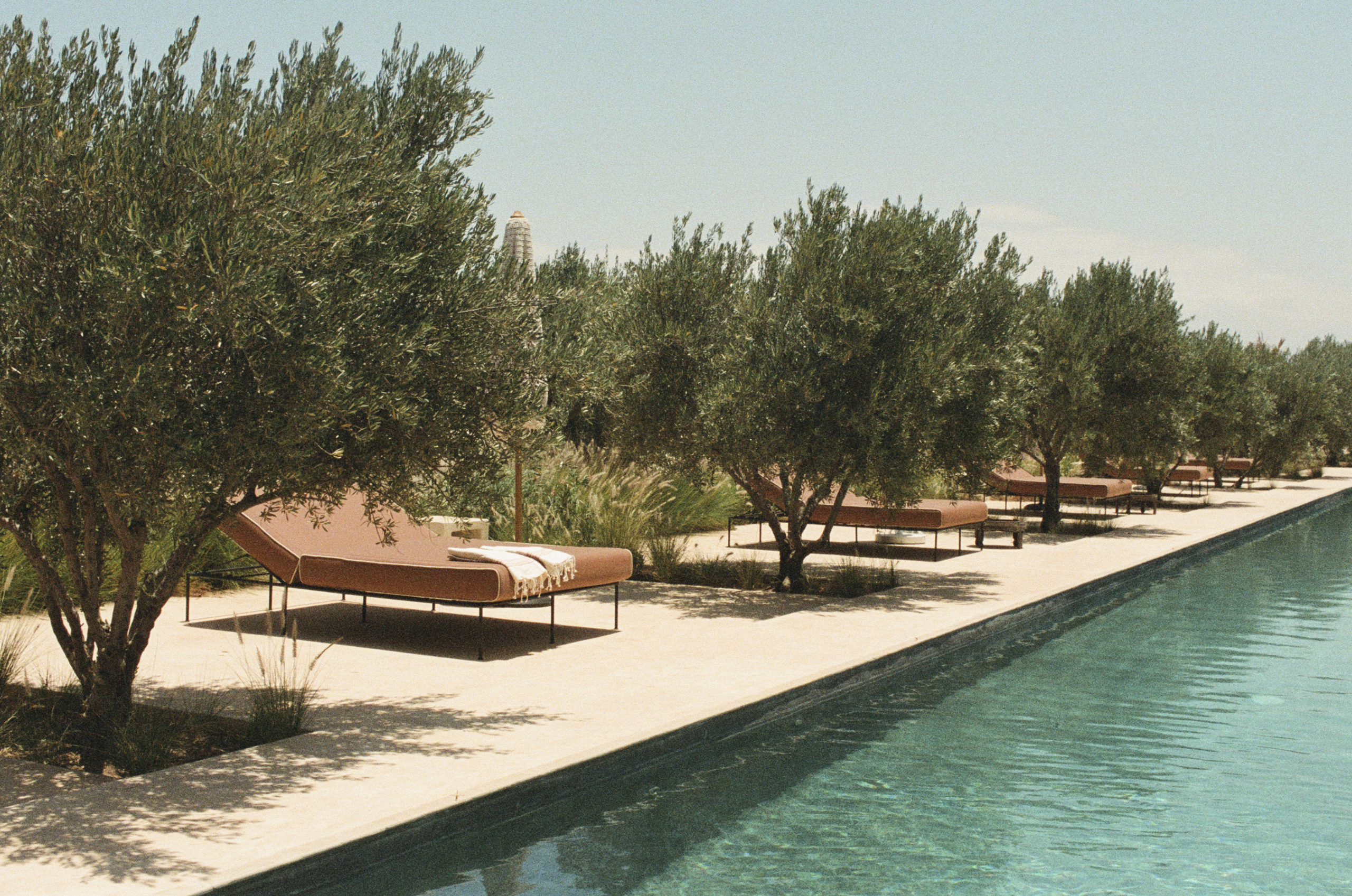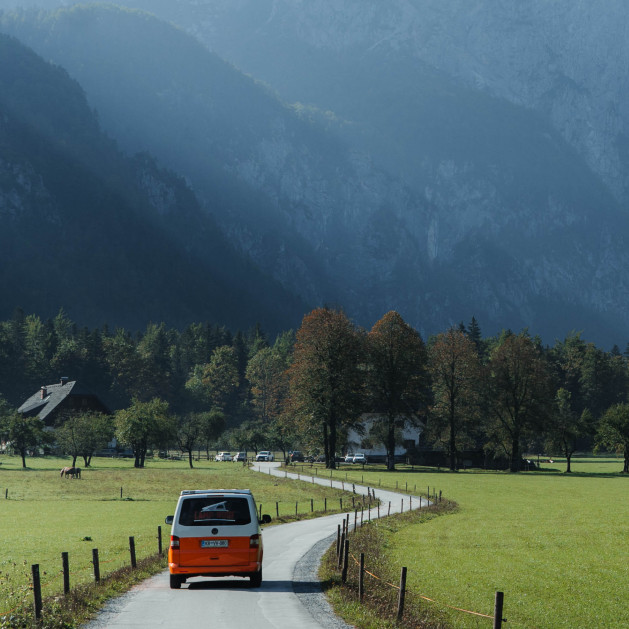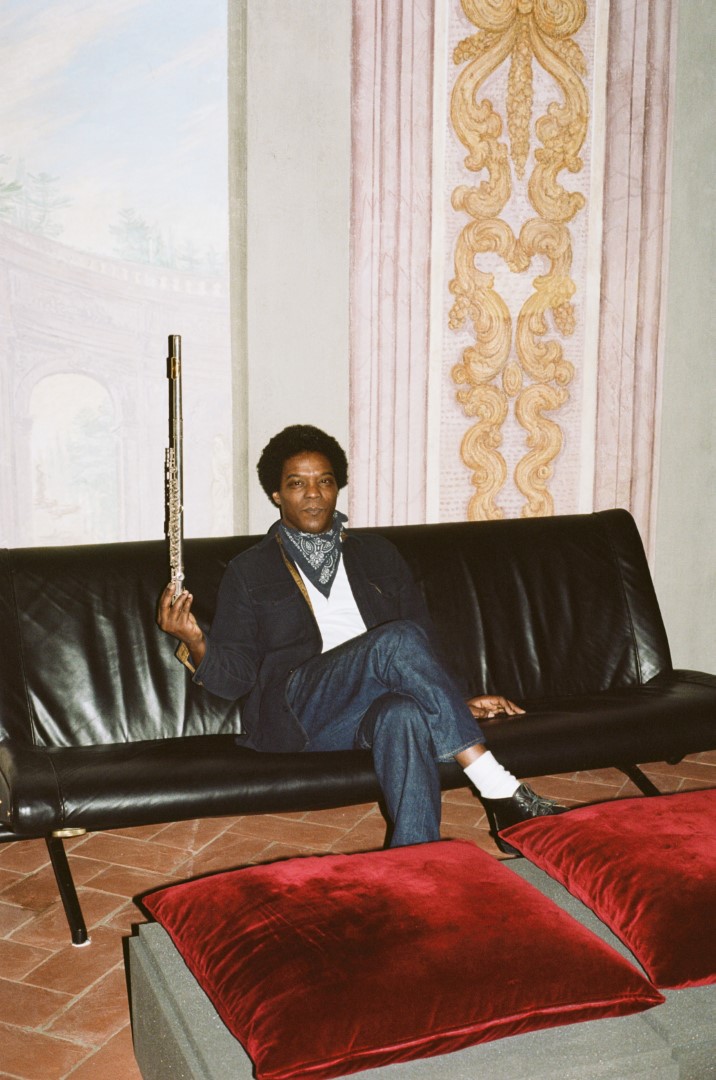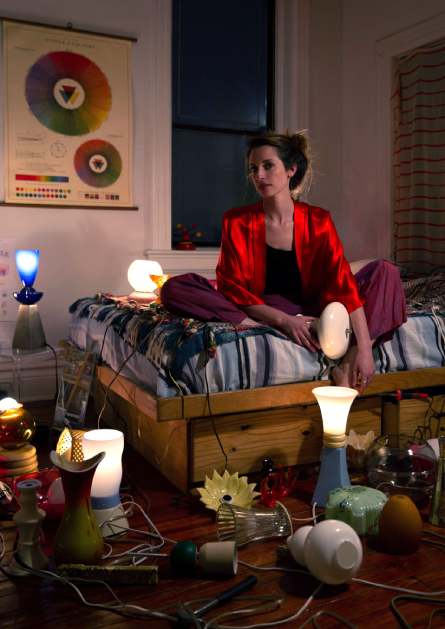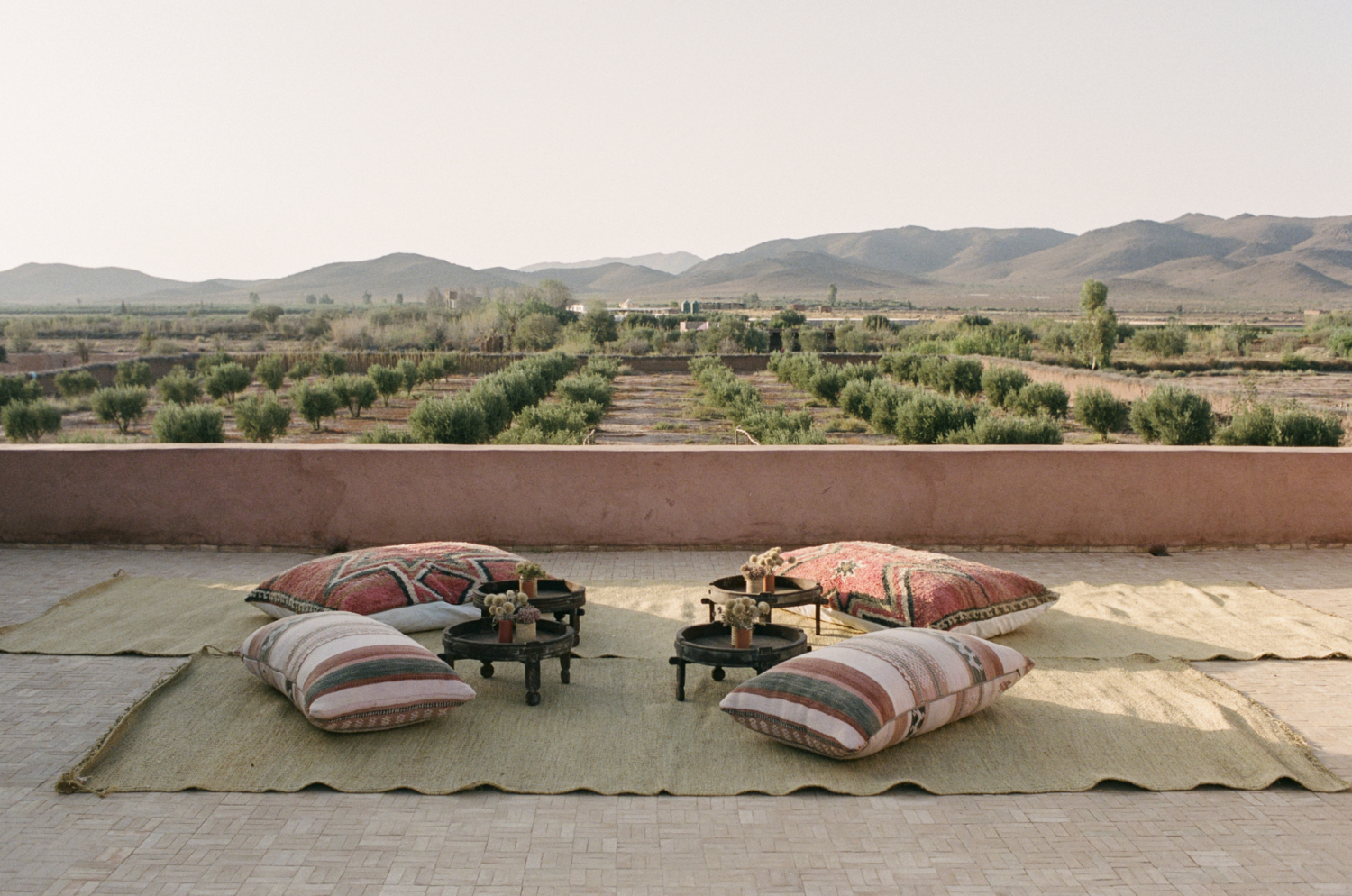
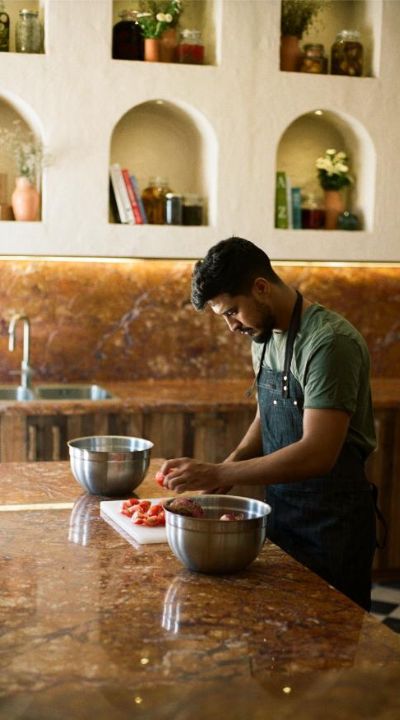
Before Marrakesh, everything was black. This city taught me about colors and I embraced its light, its brash mixtures and ardent inventions, Yves Saint Laurent once said. Marrakesh is not a city for just one visit, you want to return to it again and again. Its winding alleys in which it is easy to get lost, but with pleasure, markets full of colors, smells and tastes, vibrant atmosphere and extremely approachable hosts, are an inspiration to many travelers.
The world’s jet-set discovered the charms of Morocco a long time ago, and the famous designer Yves Saint Laurent and perfumer Serge Lutens decided to buy land here so that they could always return to it, while Winston Churchill often spent his holidays in the luxury hotel La Mamounia painting.
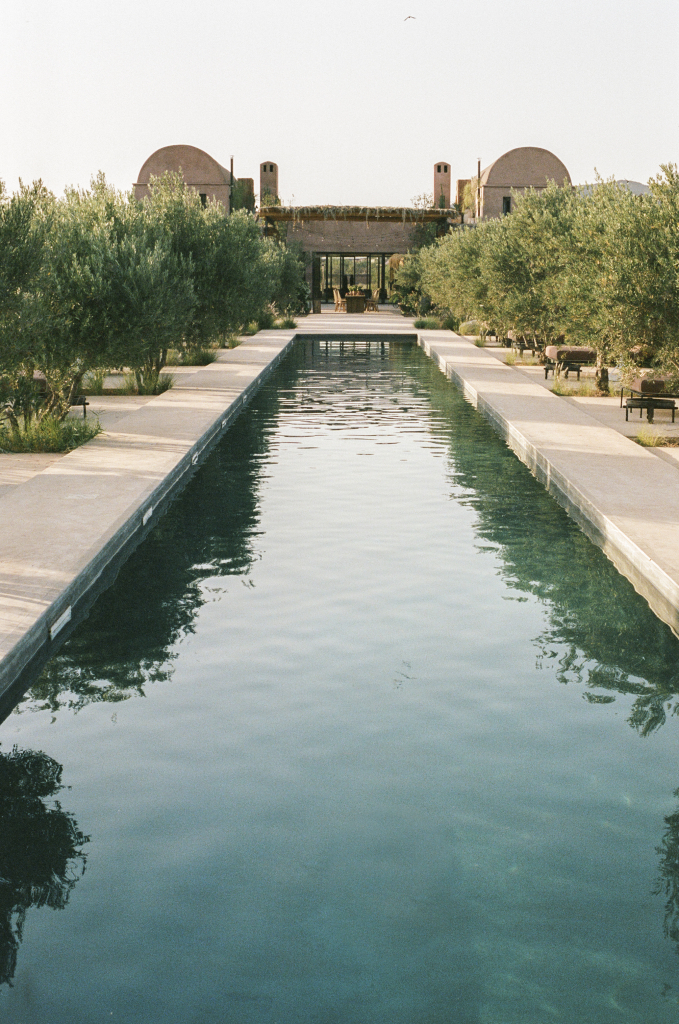
Tristan Hollingsworth
Morocco is still as charming as it was back then. This is supported by this new hotel, which approaches the traditional Moroccan garden with a completely new sense of life.
Farasha Farmhouse
Last September, Farasha Farmhouse, a boutique property with only four rooms, was opened. Located 30 minutes outside the center of Marrakech, Farasha is a former artist’s private retreat, the vision of French-Irish couple Fred and Rosena Charmoy. Morocco has been their home for some time, and on the scene they are known for theatrical over-the-top parties and weddings, events they organize for their famous clients such as Saint Laurent, Chanel as part of the Boutique Soak agency.
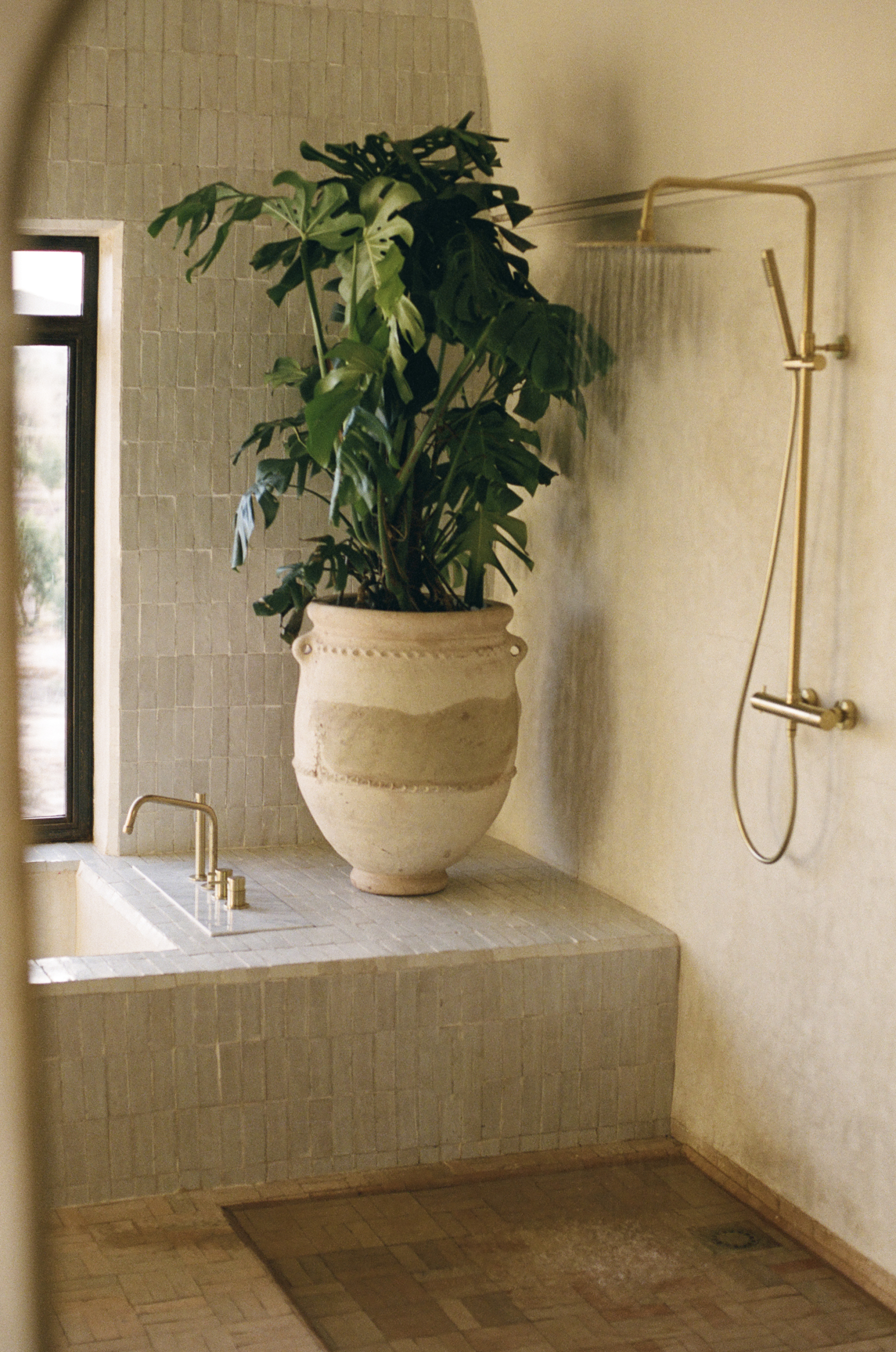
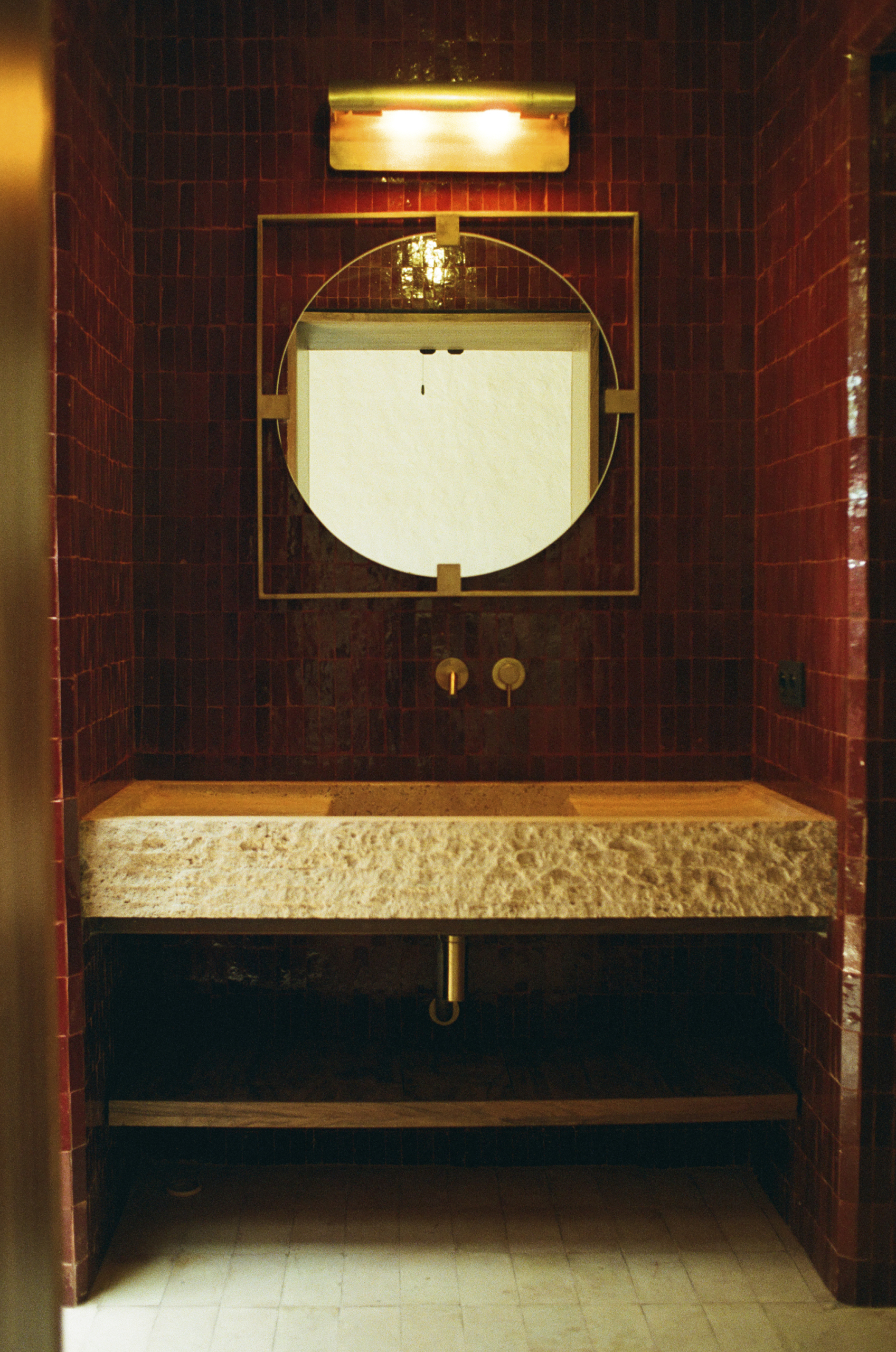
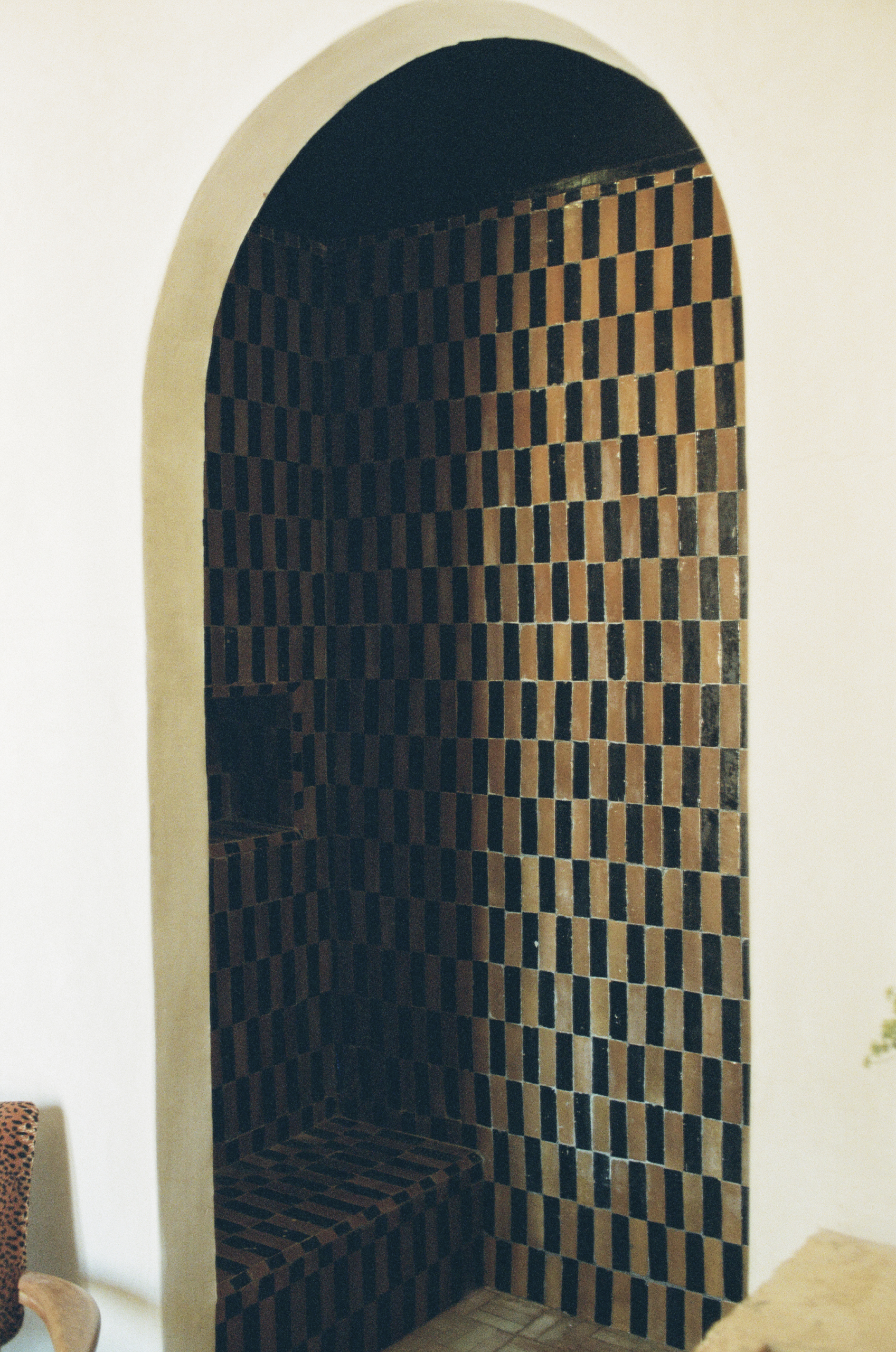
This is their slightly different, calmer, entrepreneurial venture in which they have transferred everything they know about the impressive Moroccan art scene and craftsmanship and combined it with their own approach of true visionaries. Once the residence and studio of the French painter Patrice Arnaud, the bucolic bohemian-style house was bought by Fred and Rosena in 2021. years. They say that what they liked most about the location was the cinematic view of the Atlas and Jbilet mountains that stretches out on both sides of the property. Nestled among deep-rooted olive groves, the regenerative farm and garden are a secluded and serene destination that offers guests a respite away from the hustle and bustle of Marrakech.
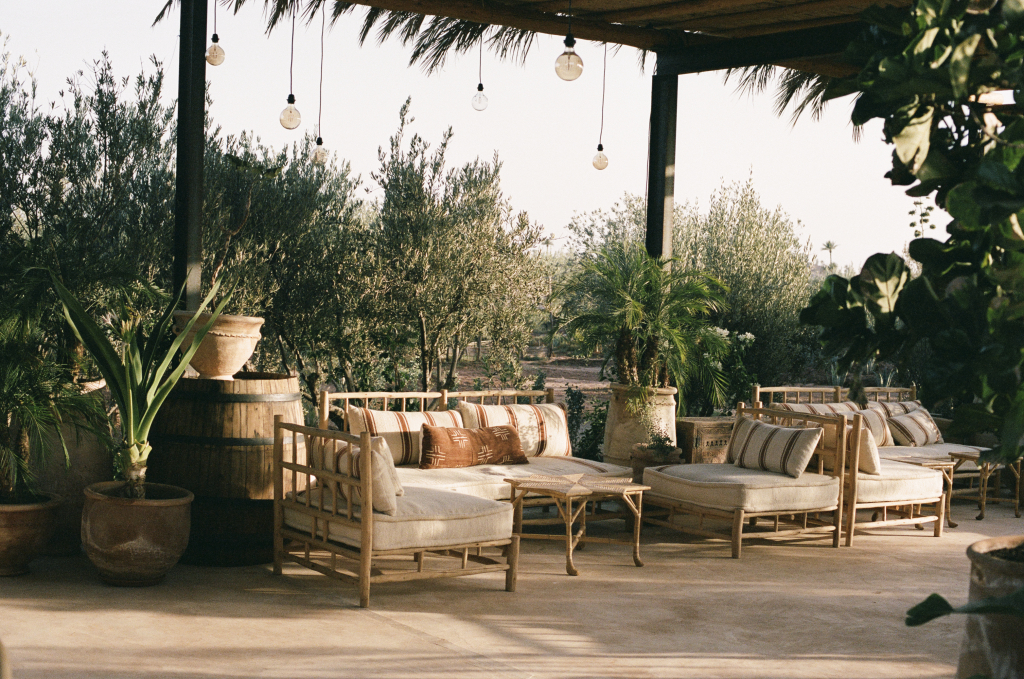
Tristan Hollingsworth
Farasha is the Moroccan word for butterfly, and the themes of metamorphosis and ascent are poetically translated into renewal. A team of skilled craftsmen dutifully transformed the former studio into two adjacent apartments, while the lower level was remodeled into spacious living areas with a bar and an open kitchen for gatherings, with an additional double bedroom and a separate casita in the style of a mini villa.
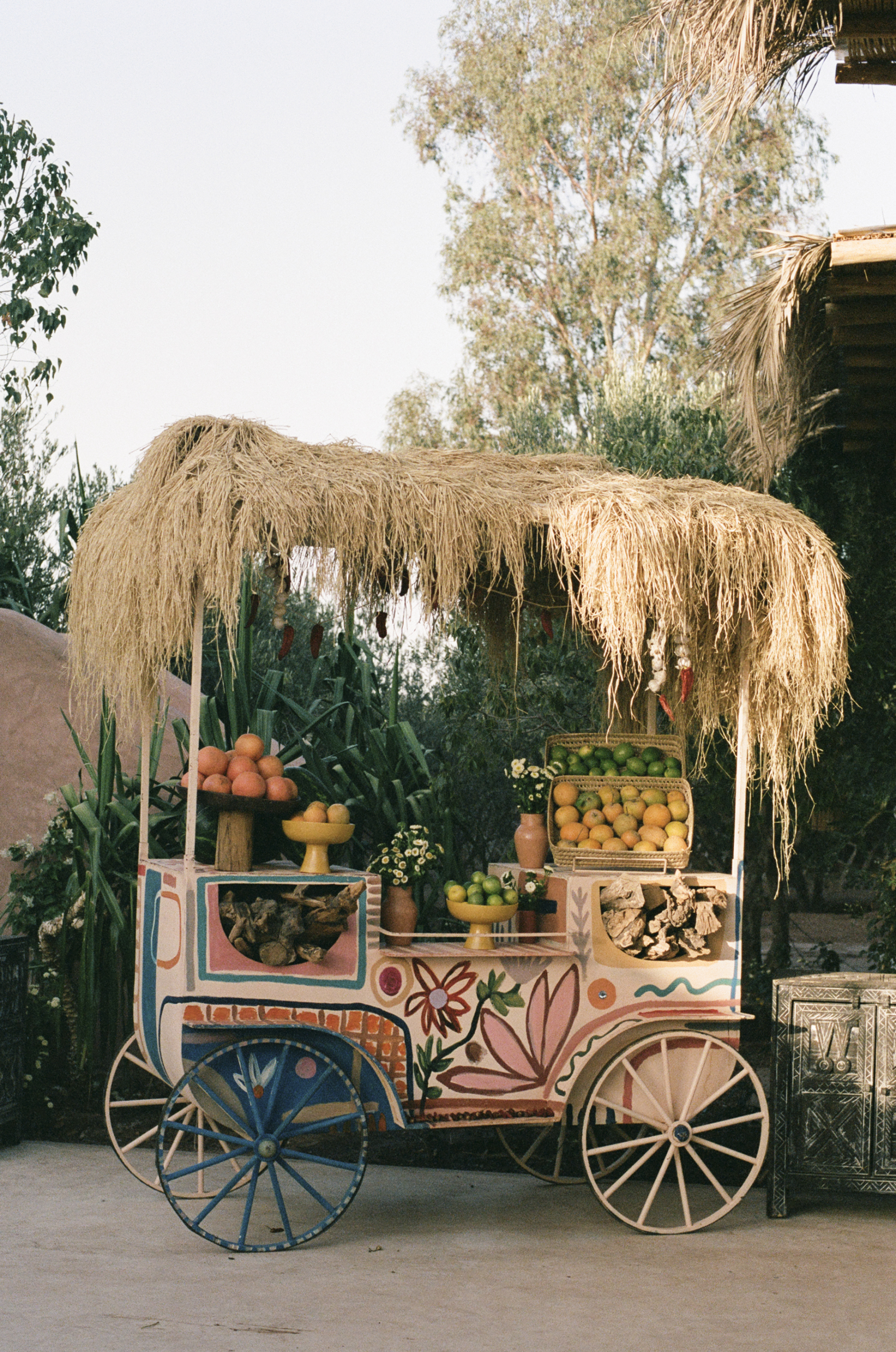
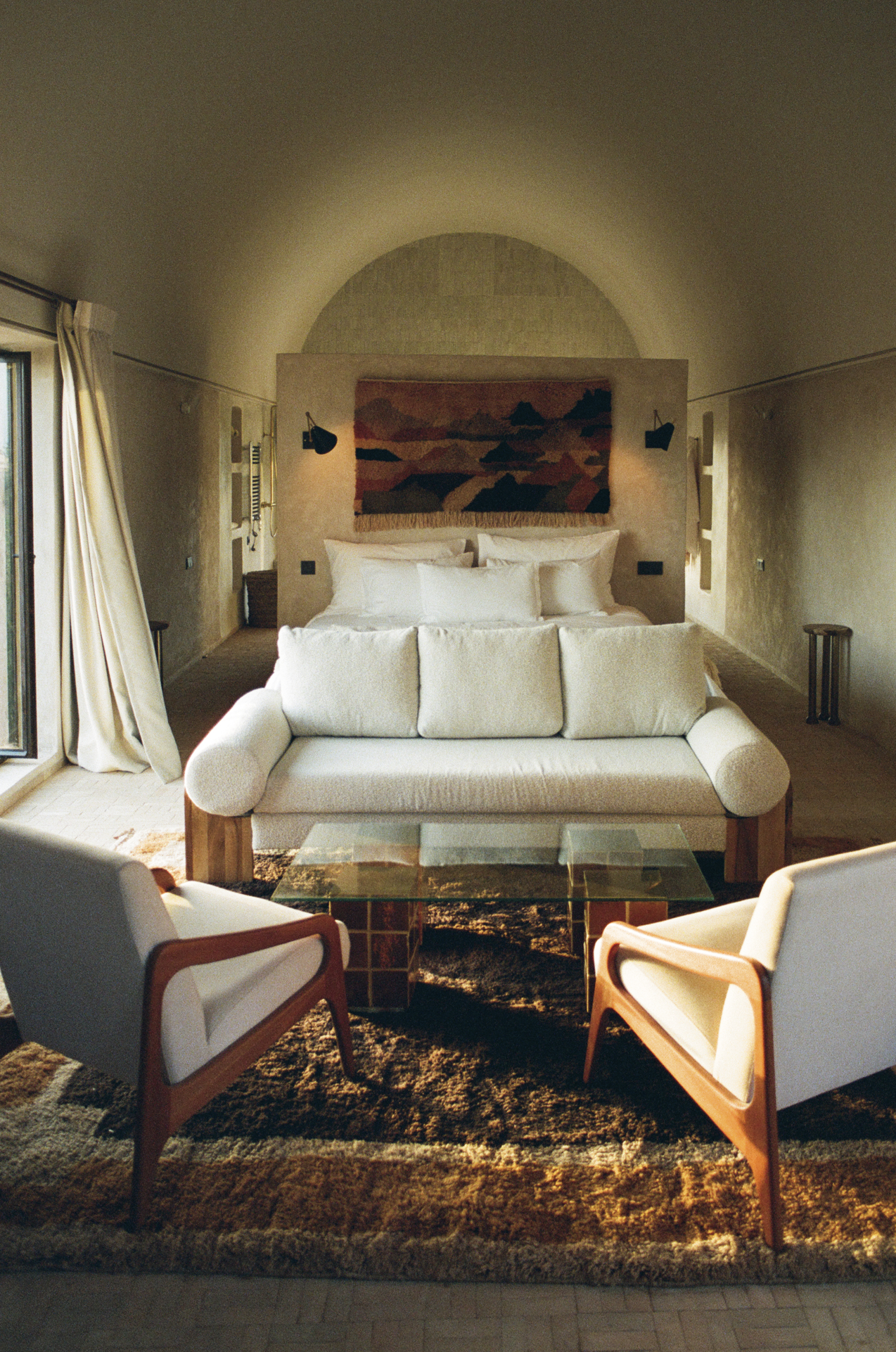
Outlined by the owners’ experience in the Boutique Souk and colored by their passion for eclectic hospitality examples that stretch from the Balearic Islands to Austin, Texas, Farmhouse Farasha blurs the lines between accommodation, art, music and wellness, inspiring a whole new perspective for the modern traveler.
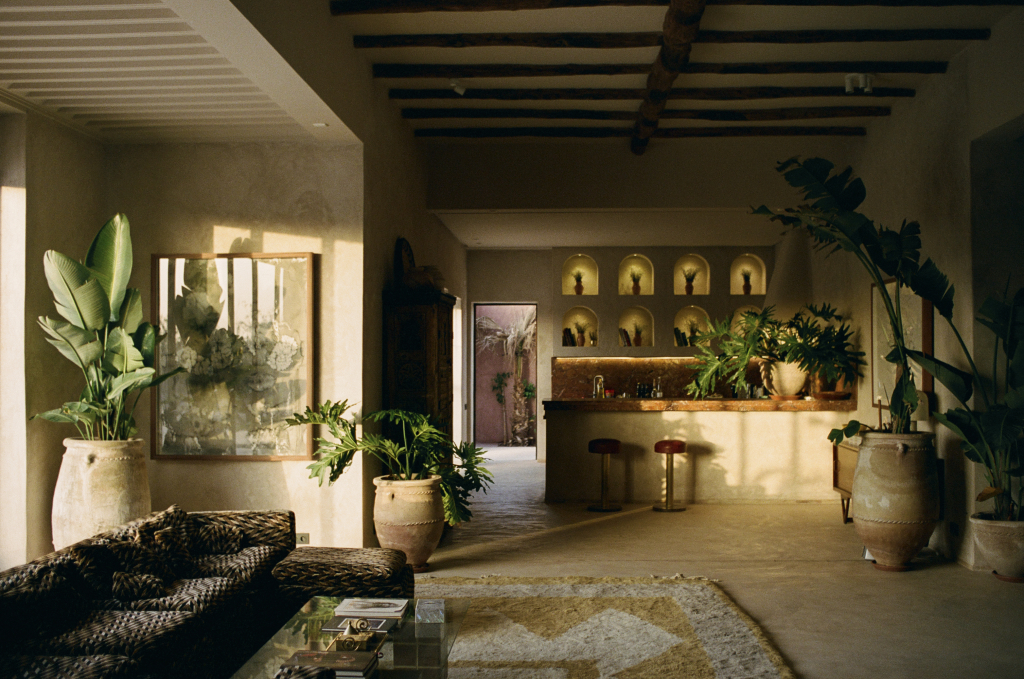
Tristan Hollingsworth
The 450-tree olive grove frames an oasis-style perennial garden and was designed by fashion insider turned intuitive landscape architect, Marius Boulesteix. The farm grows fresh fruits, vegetables and aromatic herbs for the kitchen, which are taken care of by neighboring farmers familiar with the country’s unique language. The 50-meter-long pool, framed by shady deckchairs, encourages much-needed rest by the water’s edge. Details such as garden paths strewn and softened with argan shells and the generous patterning of butterfly-attracting lantana plants are gentle reminders of the project’s metamorphic spirit.
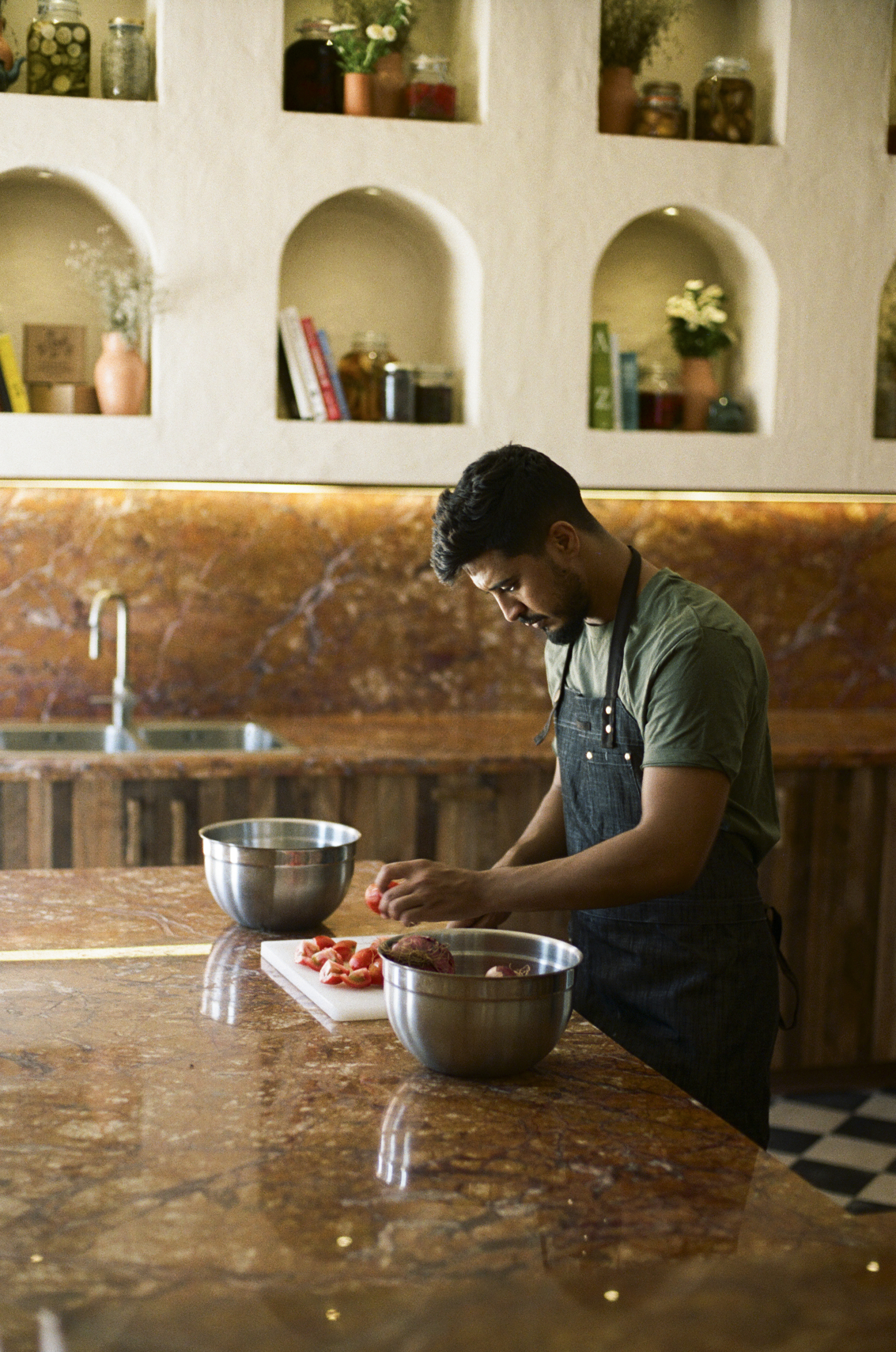
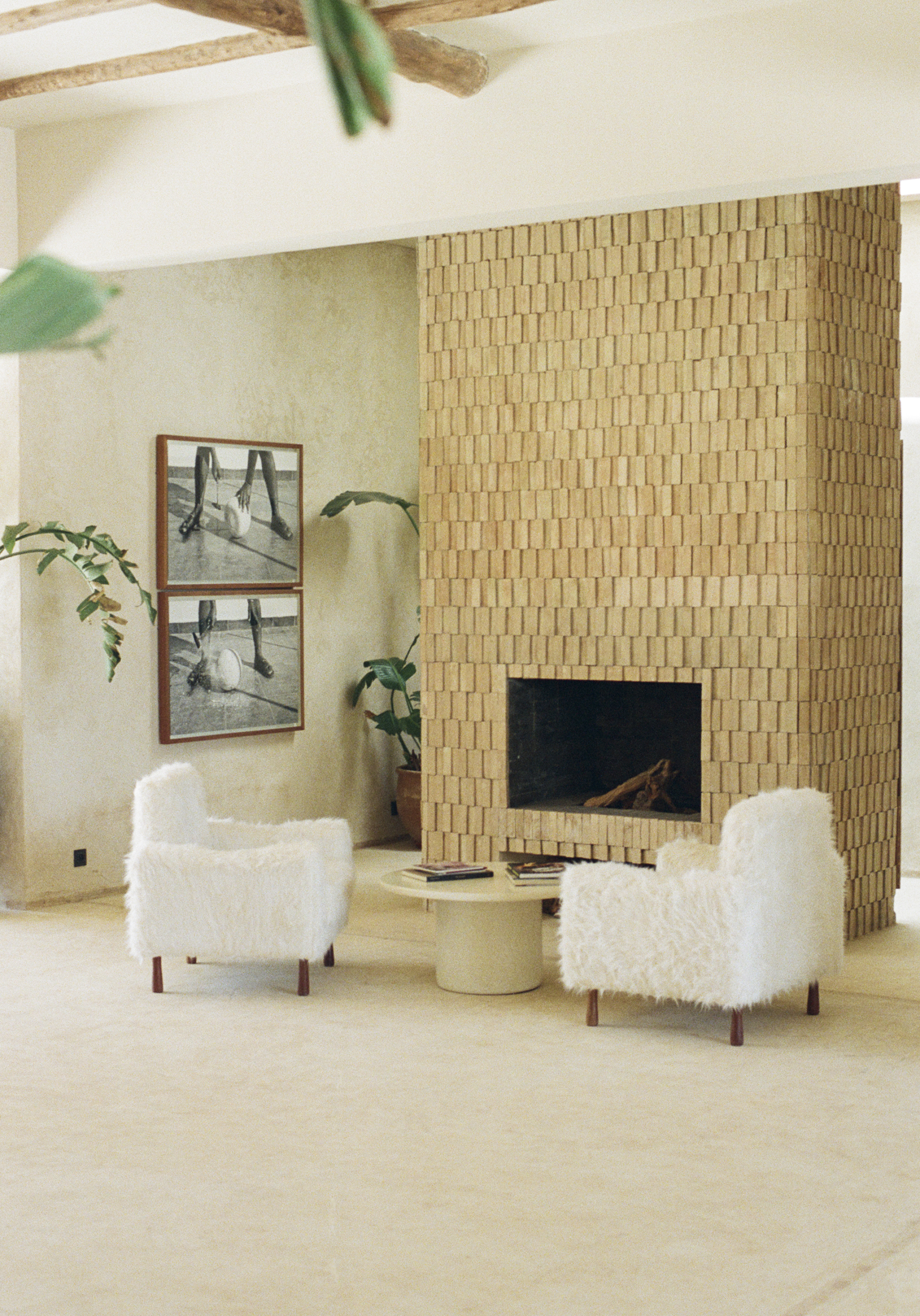
To furnish the interior, the Charmoys turned to local creative friends: the floors are laid with custom tapestries by Beni Rugs, the sculptures are by Moroccan contemporary artist Amine El Gotaibi, and the book collection comes from the family legacy of legendary former Vogue editor Diane Vreeland, who donated to the hotel by her son Freck, who served as the US ambassador to Morocco.
Relics from past creative adventures, such as the traditional iron orange juice cart hand-painted by artist Laurence Hermes of LRNCE Studio for her wedding, have been given pride of place as permanent fixtures on the patio. A collection of crystals sourced from northern Morocco is placed around the garden to enhance the energy resonance of the property.
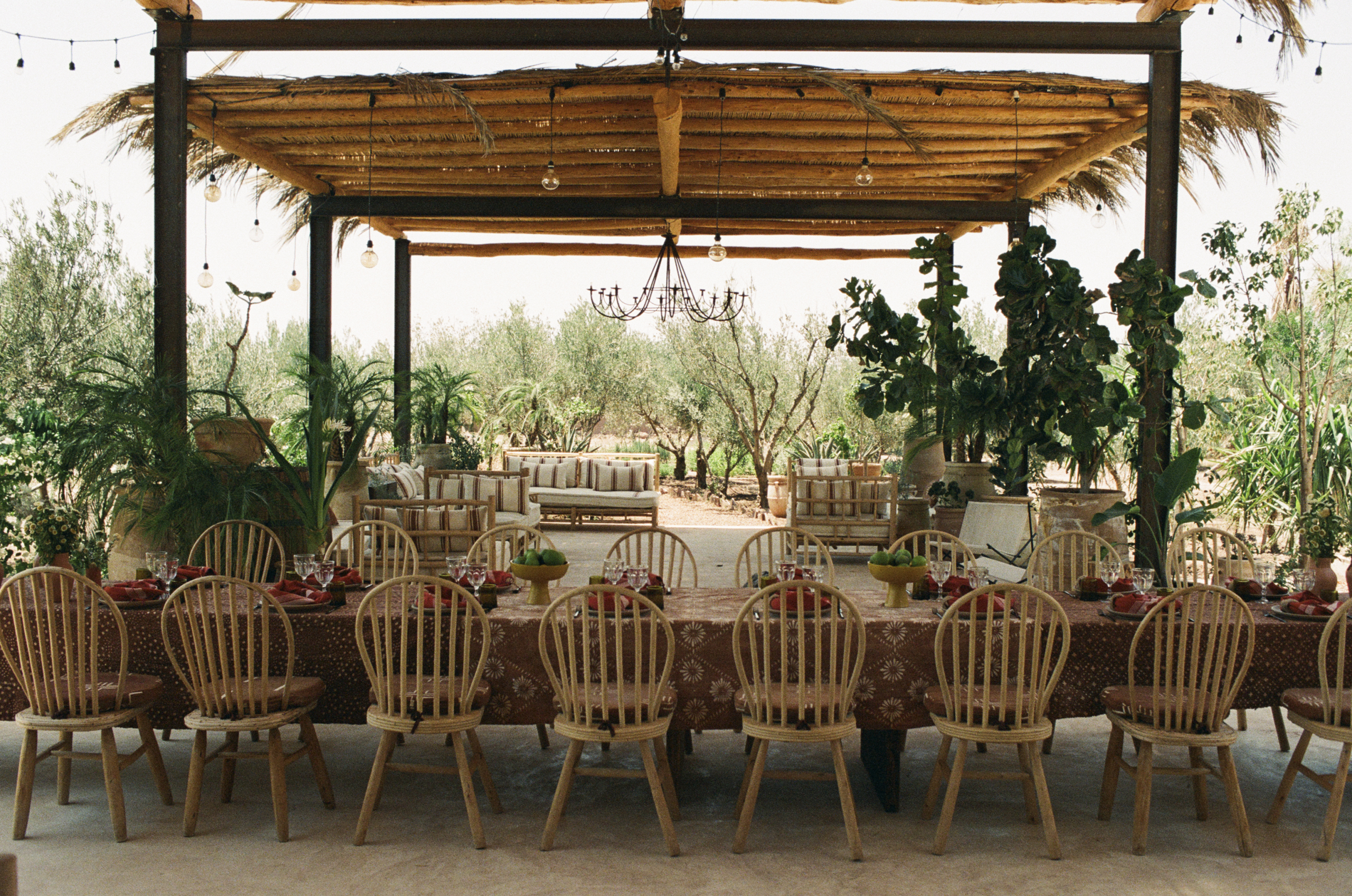
Before opening, Rosena spent three years collecting and restoring vintage pieces including the signature 1970s sofa in the central lounge. In keeping with the couple’s longstanding practice of sourcing local items and supporting independent artisans, the entire property has been enlivened with Moroccan materials, craftsmanship and wisdom. Many of our guests are looking for authenticity, nature and a welcome somewhere where they feel at home, says Rosena about the atmosphere they wanted to convey.
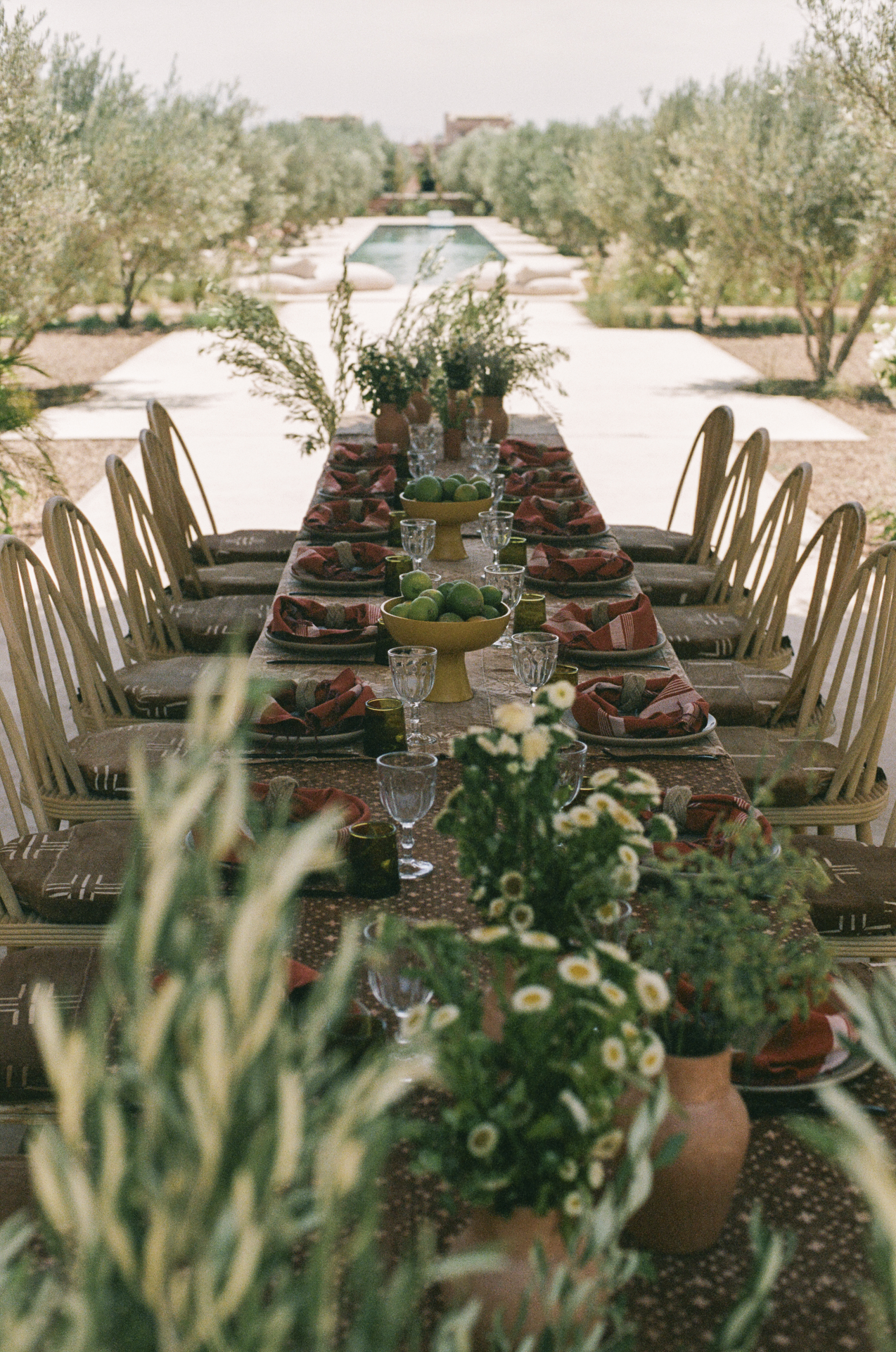
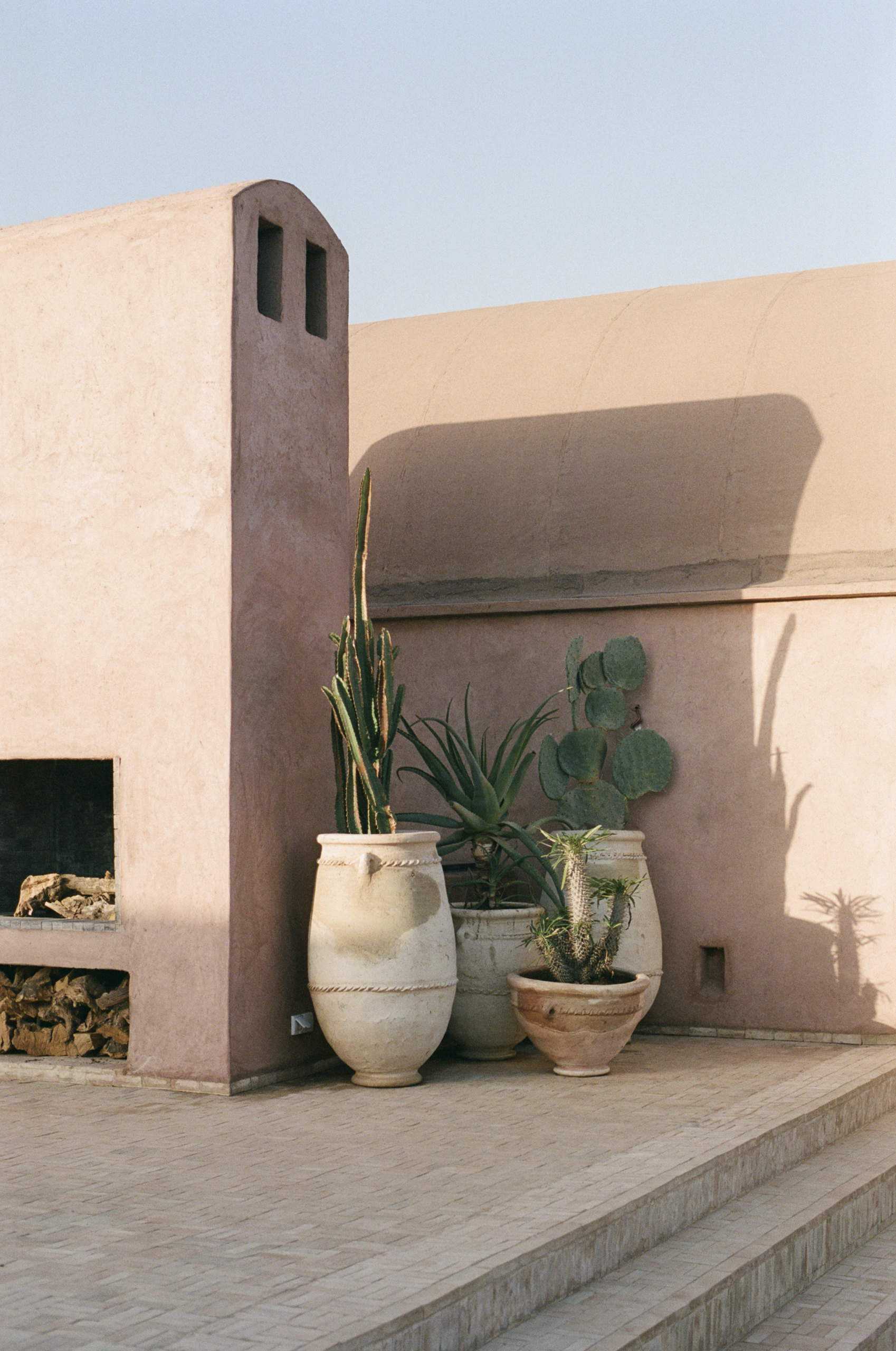
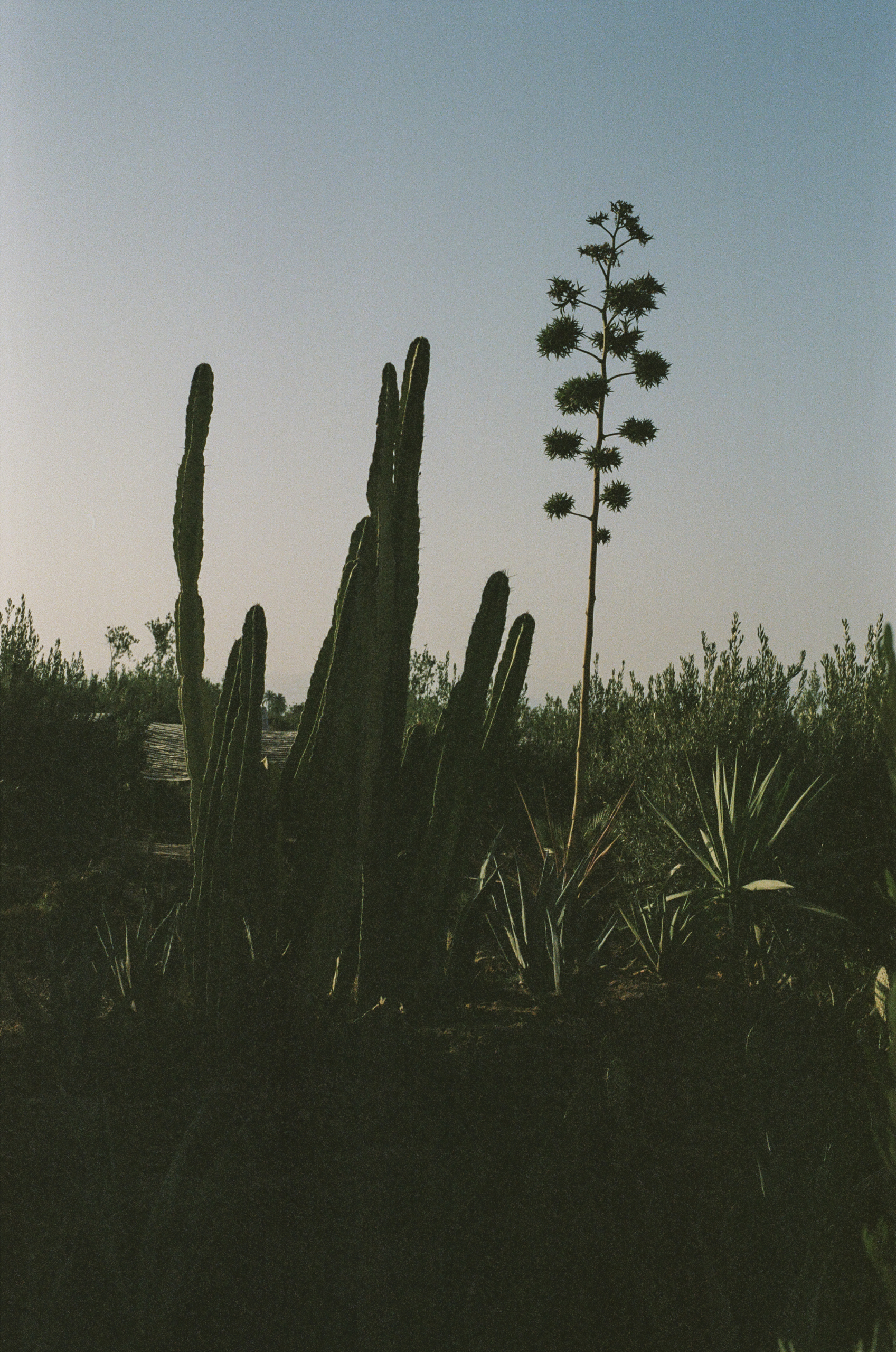
The owners of Farasha Farmhouse like to say that it is a living place, and this is supported by a carefully curated program that encourages meetings and conversations through music, art, design and ceremonies. It is the natural evolution of the owner after two decades of experience and expertise through the Boutique Souk agency. From intimate rooftop concerts held at sunset, to private site-specific installations led by artists and nightly ceremonies with information about Celtic ancestors, a dynamic year-round program keeps the property active socially.
And if the prospect of snagging one of only four guest rooms seems like a big challenge, don’t worry: six more will be available to book starting next year as the property expands to a total of ten rooms. Overnight prices range from 350 to 450 euros.
